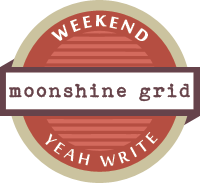Hear me out, I have a theory. Girls end up like their moms, right? If your mom is a neat freak, you will probably be one too. You probably still remember the little red dress that your mom slipped on for date nights. Maybe you were unlucky enough to have a crazy mom who didn’t get out of bed in the morning to see you off to school; maybe love feels like making your own PB&J in the dark kitchen on a cold morning.
No, I don’t think so. Girls reject their moms. Somewhere around twelve or thirteen, moms start to gross us out. Even if your mom is beautiful – and perfect – you start to hate her beauty. It’s confusing. Somehow the very existence of your mom feels annihilating. Maybe this goes both ways, maybe the fact of her daughter’s becoming a teenager feels annihilating to the mom as well. Maybe they both reject each other.
In their mutual rejection, mother and daughter reach out, grope for another connection, an alternate link to life. I suspect that fathers often fill this role for the girls, but for me it was my grandma. If you’ve read here awhile, then you know that my Bubbie was mean. She made me rinse with Listerine before I’d even lost all of my baby teeth. She blamed me for my older sister’s mental illnesses, and she regularly withheld her love for me. Still, she had a huge effect on me. I couldn’t help myself from loving her anyway, from seeking her approval and even trying to be like her despite her despicable ways.
My Bubbie was incredibly strong. She knew how to protect herself, which my loving, kind, honest mom never learned. She set her limits and didn’t let anyone cross them. My Bubbie showed me how you can love people who you don’t like. She demonstrated that meanness is just another form of admiration, that it is the recognition of dangerous difference.
I’m not defending my grandma, nor advocating meanness. I’m only noticing two decades into my adulthood how valuable that alliance has been for me. At 36, I am probably more like my mom than my Bubbie, but I learned from the best how to be mean. On a daily basis, I let my mean side temper my loving side. I use it to demand the most from my friends, and I use it to set my kids free from unhealthy expectations.
My Bubbie taught me how to protect myself. What about you? Did your grandma give you a secret super power?
Thanks to this guy for inspiring my title. So, Jack B, is it true for men, too? Do mean guys come from mean grandpas?Â









